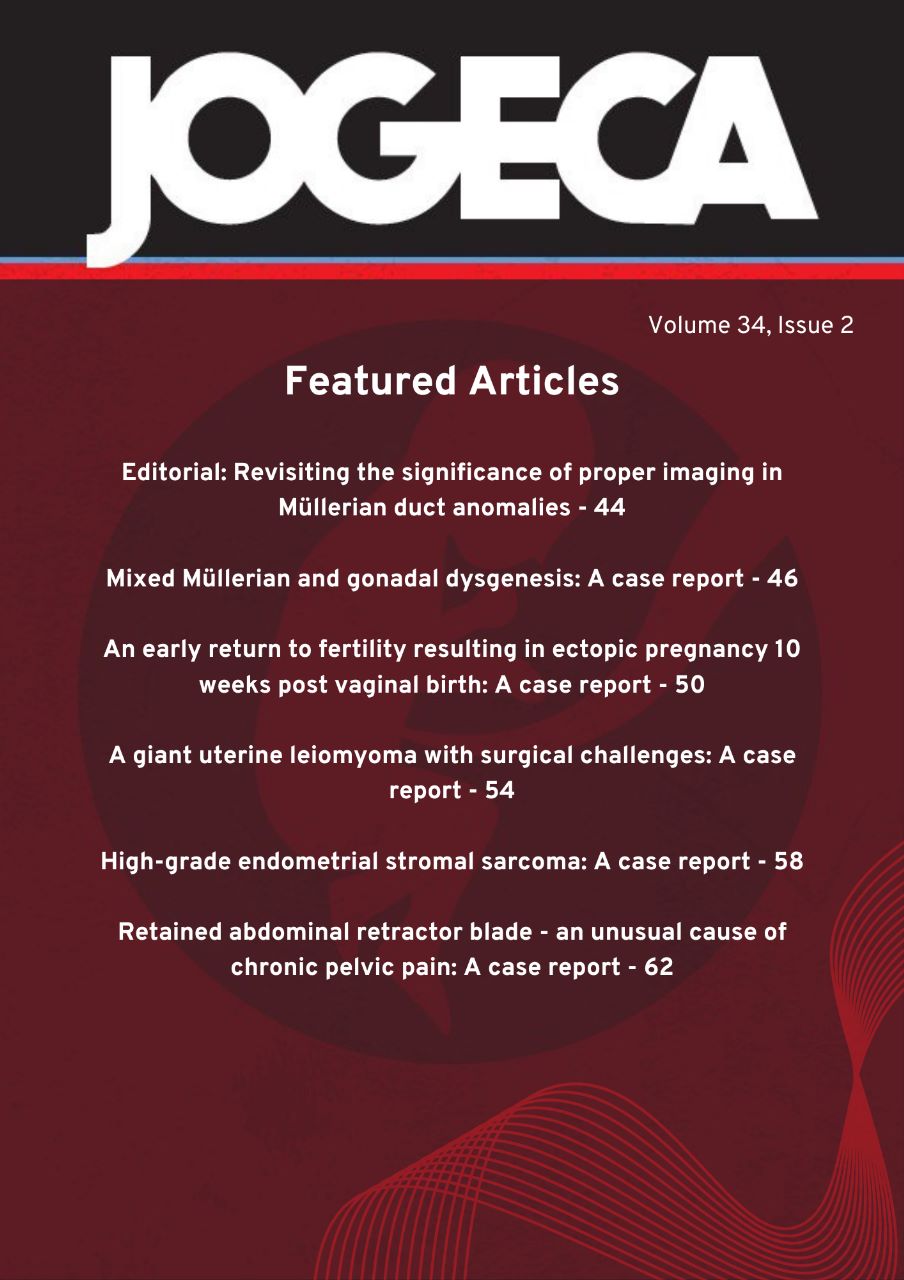49th KOGS Conference Booklet
Abstract
Welcome to the 49th Annual Kenya Obstetrical and Gynaecological Society (KOGS) Annual Scientific Congress (ASC) that is being held at the Sarova Whitesands Hotel, Mombasa from the 19th to the 21st February, 2025. It is indeed an auspicious occasion in the realm of Reproductive Health (RH), as this KOGS ASC marks the end of the first quarter of the 21st century.
Numerous historical gains have been made in our RH indicators in Kenya. For instance, there have been gains made in enhancing access to skilled birth attendance [1]; improving the contraceptive prevalence rate [2]; enhancing access to gynaecological malignancy prevention and care services [3]; strengthening local, regional and global collaborations [4]; reducing abortion-related morbidity and mortality through objective structured training in Value Clarification and Attitude Transformation of healthcare providers; enhancing the competency of Obstetricians and Gynaecologists in the use of Point-of-care Ultrasound (POCUS) [5]; and enhanced focus on advocacy, social media education and private-public partnerships, among many other initiatives. We have also been able to survive the challenges that were instigated by the Covid-19 pandemic [6] and the perennial challenge of paucity of resources, and we have sought mechanisms to enhance our collective national reproductive health resilience. The key lesson that is evident is the fact that it is only possible to optimize health indicators via equitable multi-stakeholder engagement.
In the KOGS 2025 ASC, based on the submissions, the main foci of interest are Maternal-Fetal Medicine, Benign Gynaecology and Reproductive Endocrinology and Fertility. This implies that there is a growing interest in enabling more couples in Kenya to attain motherhood and to optimize the safety of their journey of pregnancy. There is also a rising proportion of the submissions that have centred on the intricacies of advocacy, the challenges associated with research methodology and the application of Artificial Intelligence in the RH space. These are indicators in the diversification of the avenues of pursuing RH sustainability and resilience. These are bound to become vital considerations in the present and in the future in relation to enhancing the processes and the progress of realizing RH gains and optimizing our capacity to develop the resilience necessarily to sustain the realized gains.

Downloads
Published
How to Cite
Issue
Section
Categories
- Obstetrics
- Gynecology
- Maternal Fetal Medicine
- Adolescent Health and Sexuality
- Family Planning and Contraception
- Gynecologic Oncology
- Pediatric and Adolescent Gynecology
- Fertility and Endocrinology
- Urogynecology
- Infertility and ART
- Mental Health
- Reproductive Policy, Implementation, and Translational Science
License
Copyright (c) 2025 The authors.

This work is licensed under a Creative Commons Attribution 4.0 International License.




